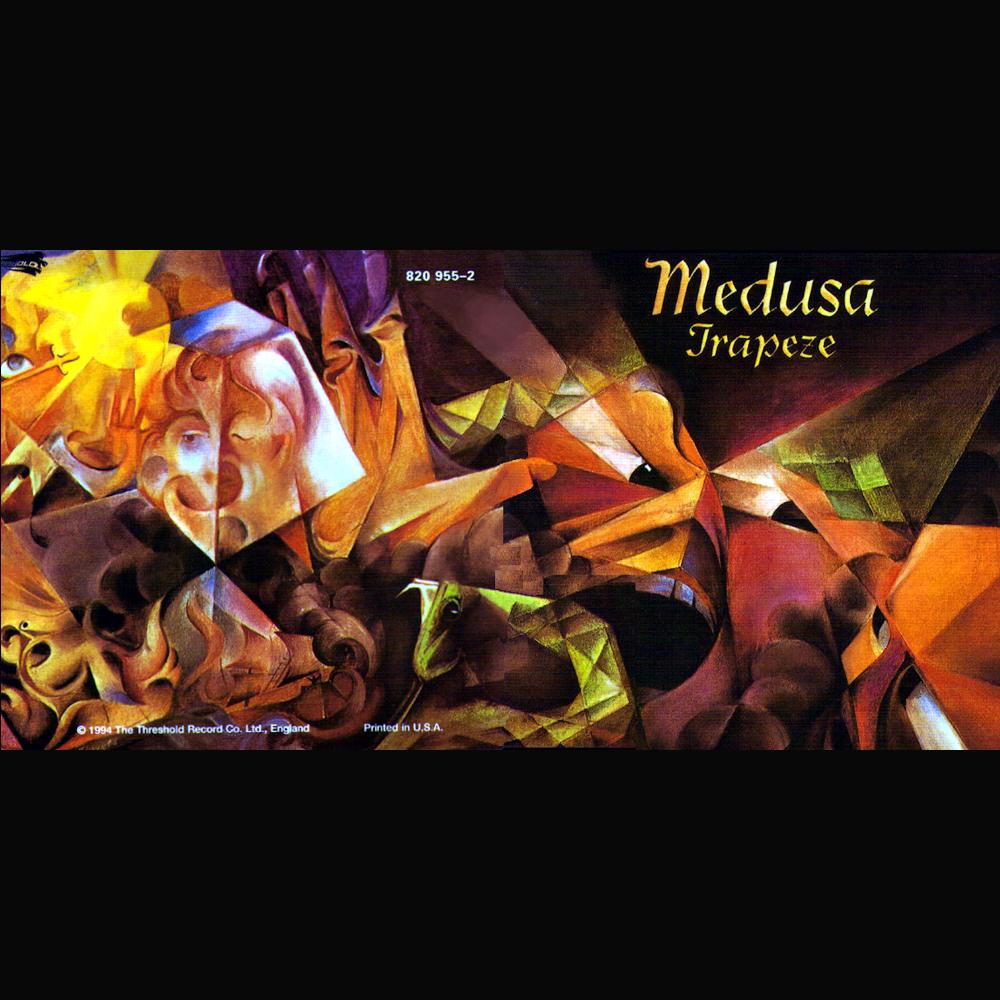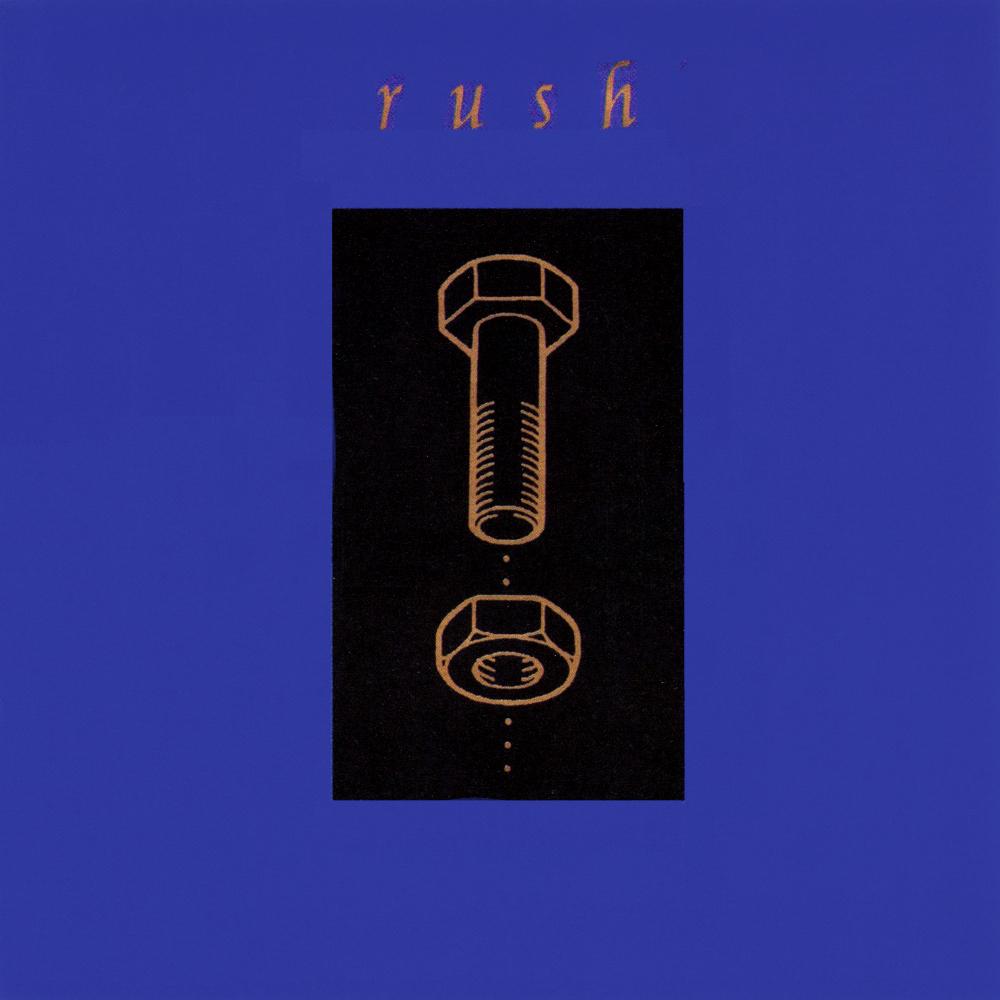
Album Information:
Album ID: 10431
About Trapeze:
Trapeze is a British rock band that was formed in Wolverhampton, England in 1969. The band was initially composed of Mel Galley on guitar and vocals, Dave Holland on drums, and Glenn Hughes on bass and vocals. Trapeze released their self-titled debut album in 1970.
Trapeze's music could be classified as blues rock, hard rock, and sometimes funk rock. The band's sound was characterized by Galley's impressive guitar work and Hughes' soulful vocals. They were also known for their strong rhythm section, with Holland's intricate drumming and Hughes' bass guitar skills.
During Trapeze's early years, they worked hard touring and building a following. They also released several albums, including Medusa in 1970, You Are the Music...We're Just the Band in 1972, and Hot Wire in 1974. The band enjoyed some success in the UK and Europe, and even toured with Deep Purple as their support act.
In 1974, Glenn Hughes left Trapeze to join Deep Purple as their new bassist and lead vocalist. The remaining members of Trapeze struggled to find a replacement for Hughes and eventually disbanded in 1979. However, the band's influence on British rock was significant, with many artists citing Trapeze as an inspiration.
In the years since Trapeze disbanded, Galley and Holland continued to play music with other groups, including Whitesnake and Judas Priest. Sadly, Galley passed away in 2008. Hughes also had a successful solo career and continued to work with other bands, most famously Black Sabbath.
In conclusion, Trapeze was a British rock band that had a significant impact on the development of blues rock and hard rock in the 1970s. Their powerful sound and skilled musicianship set them apart from their peers, and their influence can still be heard in rock music today.
About the album Medusa:
Trapeze's album Medusa is a classic rock album that was released in 1970. The band's lineup at the time consisted of Glenn Hughes on bass and vocals, Mel Galley on guitar, and Dave Holland on drums.
The album opens with the track 'Black Cloud', a hard-hitting and intense song that showcases the band's tight musicianship and Hughes' powerful vocals. This is followed by 'Jury', a bluesy track with some impressive guitar work by Galley.
The title track 'Medusa' is a standout on the album, with its haunting melody and Hughes' emotive vocals. The song builds to a climactic finish and ends with an extended guitar solo by Galley.
Other standout tracks on the album include 'Seafull', a mellow and introspective ballad, and 'Makes You Wanna Cry', a hard-rocking track with a catchy chorus and some impressive guitar riffs.
Overall, Medusa is a solid and dynamic rock album that showcases Trapeze's versatile musicianship and strong songwriting skills. The album has stood the test of time and remains a classic in the world of classic rock music.
Members:
Trapeze is a British rock band that was formed in 1969. The key members of the band include:
1. Mel Galley (guitar, vocals): Mel Galley was born on March 8, 1948, in Cannock, Staffordshire, England. He started playing guitar as a teenager and joined Trapeze in 1970. He played with the band until 1979, during which time they released several albums. After leaving Trapeze, Galley played with other bands like Whitesnake, Phenomena, and MGM, among others. He passed away on July 1, 2008, due to complications from pneumonia.
2. Glenn Hughes (bass, vocals): Glenn Hughes was born on August 21, 1952, in Cannock, Staffordshire, England. He joined Trapeze in 1969 and played with the band until 1973. Hughes is known for his distinctive singing voice and his impressive bass playing. After leaving Trapeze, Hughes played with other bands like Deep Purple, Black Sabbath, and California Breed. He also released several solo albums.
3. Dave Holland (drums): Dave Holland was born on April 6, 1948, in Northampton, England. He joined Trapeze in 1969 and played with the band until 1979. Holland is known for his powerful drumming style and his ability to play complex rhythms. After leaving Trapeze, he played with other bands like Judas Priest, Black Sabbath, and Iron Maiden.
4. Rob Kendrick (vocals, guitar): Rob Kendrick joined Trapeze in 1979 after Galley left the band. Kendrick played with the band until 1981 when they disbanded. Not much is known about Kendrick's biography beyond his tenure with Trapeze.
5. Terry Rowley (keyboards): Terry Rowley joined Trapeze in 1979 and played with the band until they disbanded in 1981. He is primarily known for his keyboard playing and his contributions to the band's sound during their later years.
6. Pete Wright (bass): Pete Wright played bass with Trapeze from 1974 until they disbanded in 1981. He was part of the band's later years and contributed to their evolving sound during that time.
Track List for Medusa:
I'm sorry, but Trapeze did not release an album titled 'Medusa.' However, I can provide information about Trapeze's fourth album, which is titled 'Medusa' released in 1970.
Here are the tracks in the album 'Medusa' by Trapeze, in order with the play time and detailed descriptions:
1. Black Cloud - 5:41
The album opens up with a haunting and moody instrumental track that sets the tone for the rest of the album. It features a mix of electric guitar, bass, and drums, creating a dark and brooding atmosphere.
2. Jury - 5:15
'Jury' has a bluesy and heavy rock sound that showcases the band's musical prowess. The guitar riffs are particularly memorable, and the song's raw energy is infectious.
3. Your Love Is Alright - 3:59
This is a more mellow and soulful track that features a prominent bass line and a catchy chorus. It's a nice change of pace from the previous two tracks and shows the band's versatility.
4. Touch My Life - 6:01
'Touch My Life' is a beautifully melodic ballad that showcases Glenn Hughes' powerful vocals. The song's lyrics are about finding hope in a world that can seem bleak at times, and the soaring guitar solo at the end is particularly moving.
5. Seafull - 5:28
This is a somewhat trippy instrumental track that features a lot of guitar experimentation, including a lot of wah-wah and distortion effects. It's an interesting departure from the more straightforward rock tracks on the album.
6. Makes You Wanna Cry - 4:36
This song starts off slow and moody before building up to a powerful chorus. It's another showcase for Hughes' impressive vocal range, and the song's emotional lyrics are sure to resonate with listeners.
7. Medusa - 8:20
The title track is a sprawling epic that clocks in at over 8 minutes long. It features a mix of heavy guitar riffs and intricate instrumental sections that allow each member of the band to show off their skills. The song's lyrics are inspired by the Greek myth of Medusa and the dark and foreboding atmosphere matches the subject matter perfectly.
8. Will Our Love End - 3:35
The album ends on a somewhat unusual note with this gentle and melodic ballad. It's a nice way to close out an album that has covered so much emotional ground, and it shows that Trapeze is capable of more than just heavy rock and blues.
Discography for Trapeze:
Here is a complete discography for Trapeze in chronological order:
Albums:
1. 'Trapeze' - January 1970
2. 'Medusa' - November 1970
3. 'You Are the Music...We're Just the Band' - March 1972
4. 'The Final Swing' - August 1974
5. 'Hot Wire' - 1974
6. 'Traitor' - 1978
7. 'Hold On' - 1978
8. 'Live at the Boat Club' - 1992
9. 'Live in Texas: Dead Armadillos' - February 1992
10. 'On the Highwire' - 1994
11. 'Live At The Wayne State University FM' - 1994
12. 'Live in Houston: Dead Armadillos' - November 1998
Singles:
1. 'Send Me No More Letters' / 'Suicide' - April 1970
2. 'Black Cloud' - November 1970
3. 'Your Love Is Alright' - March 1972
4. 'Coast to Coast' - August 1972
5. 'Back Street Love' - March 1973
6. 'Midnight Flyer' - June 1973
7. 'Turn It On' - July 1974
8. 'The Running Man' - October 1978
9. 'Back Street Love' (Live) - 1978
Other releases:
1. 'Welcome to the Real World' (EP) - 1979
2. 'High Flyers: The Best of Trapeze' - 1996
3. 'The Collection' - 2002
Note: Some of these releases may have different release dates in different regions or countries.


 Last Played: 11/01/24 06:37 AM
Last Played: 11/01/24 06:37 AM Last Played: 11/01/24 06:31 AM
Last Played: 11/01/24 06:31 AM